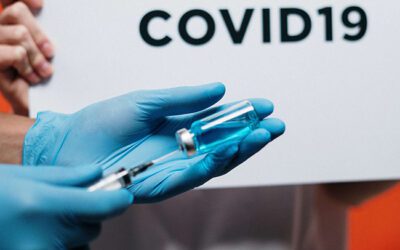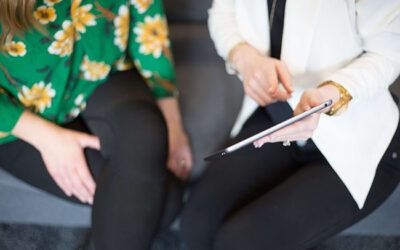What is Coronavirus?
The Novel Coronavirus 2019 (COVID-19) is a new virus strain first identified in Wuhan, China. Infection with the virus can cause a range of illnesses from common cold symptoms to severe pneumonia requiring assistance with breathing and, sadly, some patients are dying from this infection.
What are the symptoms?
In general, symptoms can include but are not limited to:
- Fever
- Cough
- Difficulty breathing
How is the virus spread?
COVID19 is believed to be spread in the following ways:
- Respiratory droplets produced by coughing and sneezing.
- Close personal contact, like shaking hands.
- Touching a surface with the virus on it and then touching your mouth, nose or eyes before washing your hands.
How can you protect yourself?
- Wash your hands thoroughly, for at least 20 seconds each time.
- Cover your cough or sneeze with a tissue, then throw the tissue in the trash.
- Avoid touching your eyes, nose and mouth.
- Stay home when you are sick.
- Routinely and frequently disinfect touched objects and surfaces, using a cleaning spray or wipe.
- The virus is in our community, but it is also important to avoid travel to high-risk countries. Non-essential travel to or through any of the countries for which the CDC has issued a level 2 or 3 travel health notice should be avoided: (https://www.cdc.gov/coronavirus/2019-ncov/travelers/index.html)
Who is at higher risk?
The CDC has identified certain people who appear to be at higher risk of getting seriously ill from this virus. This population includes:
- Older adults.
- People with serious chronic medical conditions such as heart disease, diabetes and lung disease.
If you or your loved one are in one of these groups, here are some additional precautions to take:
- Avoid crowded places where you may be in contact with sick people, such as malls, movie theaters, large gatherings, church/worship services, cruises, etc. Avoid hospitals or nursing homes unless you are there to receive medical care.
- Pay attention for potential COVID-19 symptoms including fever, cough and shortness of breath. If you think you are developing symptoms, call us at AIM Health (503) 908-1590.
At this time, the CDC does not recommend that people who are well wear a mask to protect themselves from respiratory illnesses, including COVID-19. You should wear a mask if a healthcare professional recommends it. A mask should be used by people who have COVID-19 and are showing symptoms of infection like coughing, sneezing or fever. This is to protect others from the risk of getting infected.
What to do if you are sick or exposed to the virus:
- Quarantine at home. If you believe you have been exposed to the virus – even if you are not showing any symptoms – stay home.
- Monitor yourself for fever, coughing and shortness of breath.
- Do not have visitors.
- Do not go to another person’s home.
- Do not use public transportation.
- Restrict activities outside your home, except for seeking medical care.
- Do not go to work, school or public areas.
- Avoid close contact with household members (stay 10 feet away when possible).
- Cover coughs and sneezes.
- Clean all “high touch” surfaces every day.
- Use separate sleeping and bathroom/bathing facilities, if feasible.
- Avoid sharing personal household items (dishes, drinking glasses, cups, eating utensils, towels or bedding). After using these items, they should be washed thoroughly with soap and water.
When should you seek medical evaluation?
- If you have an emergency medical situation, call 9-1-1.
- For worsening symptoms or difficulty breathing, please contact your physician at AIM Health and we can help determine your best course of action.
- If you do not have a high-risk condition and your symptoms are mild, you do not need to be evaluated in person and do not need to be tested for COVID-19.
- Please avoid going to the emergency department, unless you have a health emergency and/or you have been advised by a physician to do so. This helps prevent the risk of spreading this disease and further exposure in our community and allows us to direct critical and limited emergency resources to those who are very sick.
Who should be tested?
People are not currently being tested for COVID-19 unless they meet certain criteria set by the CDC. The criteria are set by the CDC as a condition of the FDA-approved emergency use authorization, which allows new tests to be used in an emergency situation on high-risk people only and people who are hospitalized with symptoms that are otherwise unexplained. These criteria may evolve, as this is a changing situation. As of this writing, we are unable to test for COVID-19 at AIM.
How is this virus treated?
There is no specific treatment for this virus. It appears that many people with COVID-19 will recover on their own with self-care at home. At this time, there is no specific antiviral treatment recommended for COVID-19. For severe cases, treatment may require supportive care in the hospital. Please call us at AIM Health any time for questions or further direction. If you have symptoms consistent with a possible infection, please call us before coming to the clinic. This will help us give you immediate attention as well as help us take steps to keep other people from getting infected or exposed.
For up to date information about coronavirus and the community public health response, visit your local public health website or the CDC: https://www.cdc.gov/coronavirus/2019-ncov/index.html
- Multnomah County Public Health: (503) 988-3406 or https://multco.us/novel-coronavirus-covid-19
- Clackamas County Public Health: (503) 742-5300 or https://www.clackamas.us/about-coronavirus-disease-2019-covid-19
- Clark County Public Health: (564) 397-8182 or https://www.clark.wa.gov/public-health/novel-coronavirus
- Washington County Public Health: (503) 846-3594 or https://www.co.washington.or.us/HHS/CommunicableDiseases/covid-19.cfm
- Marion County Public Health: (503) 588-5342 or https://www.co.marion.or.us/HLT/Pages/COVID-19.aspx



